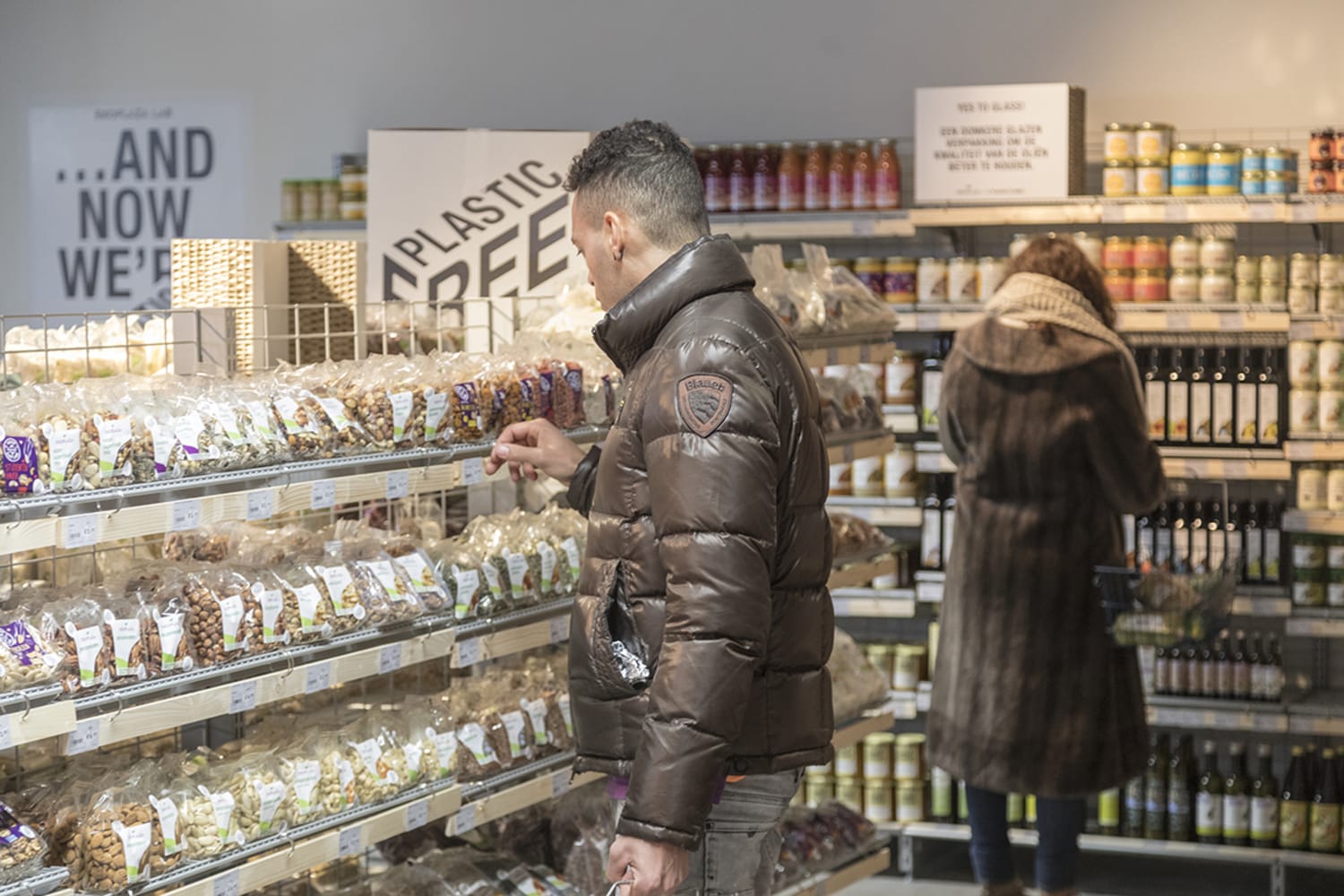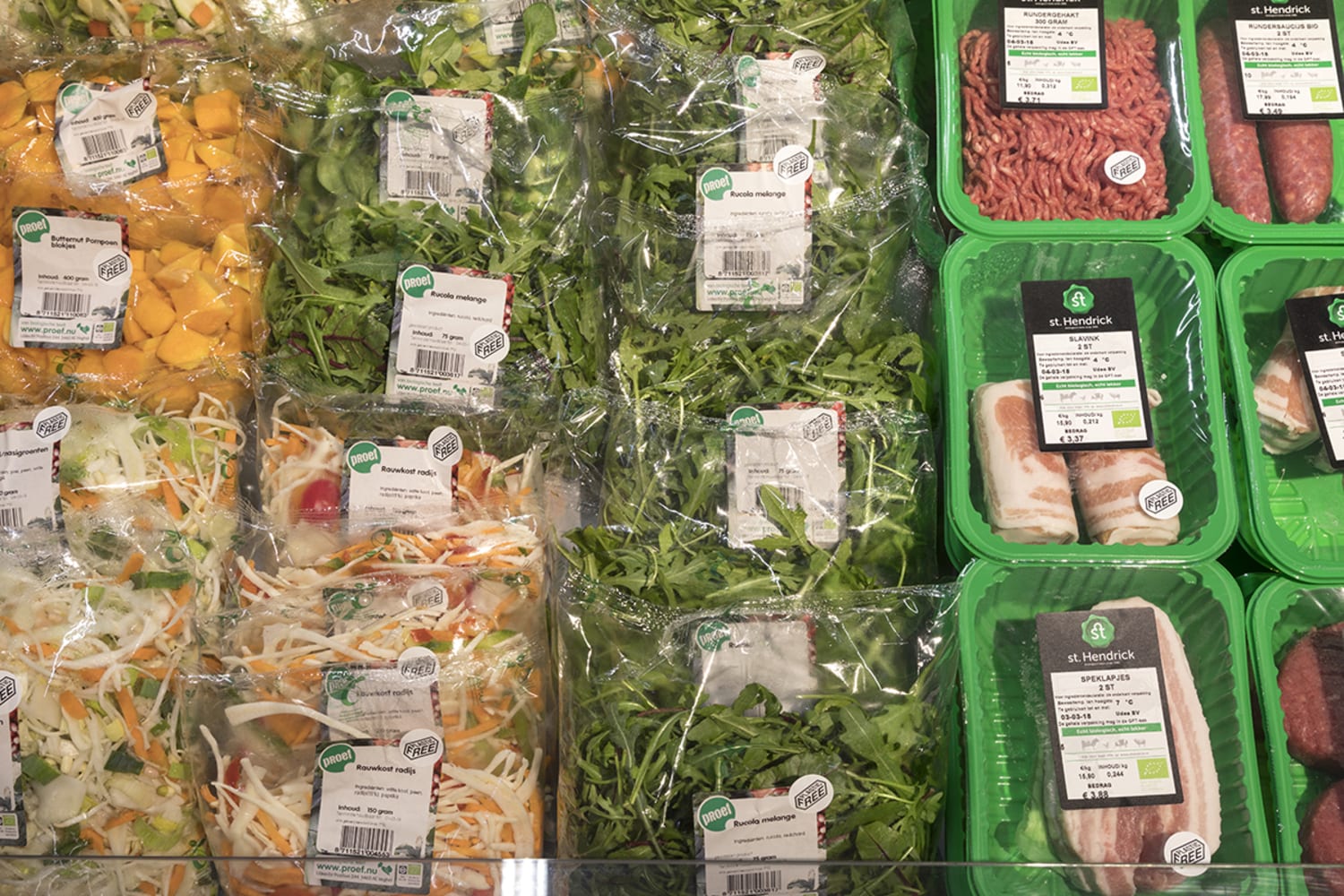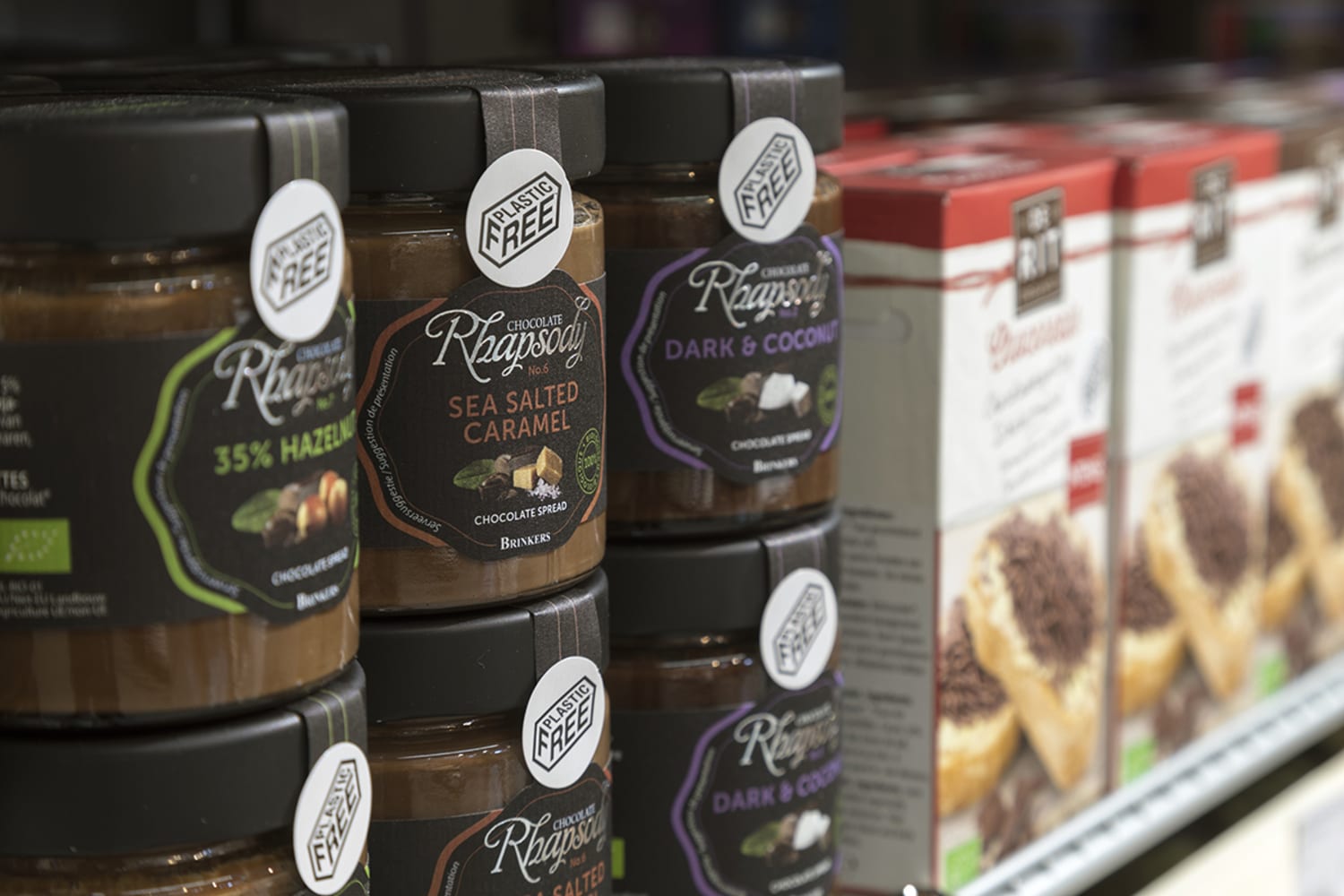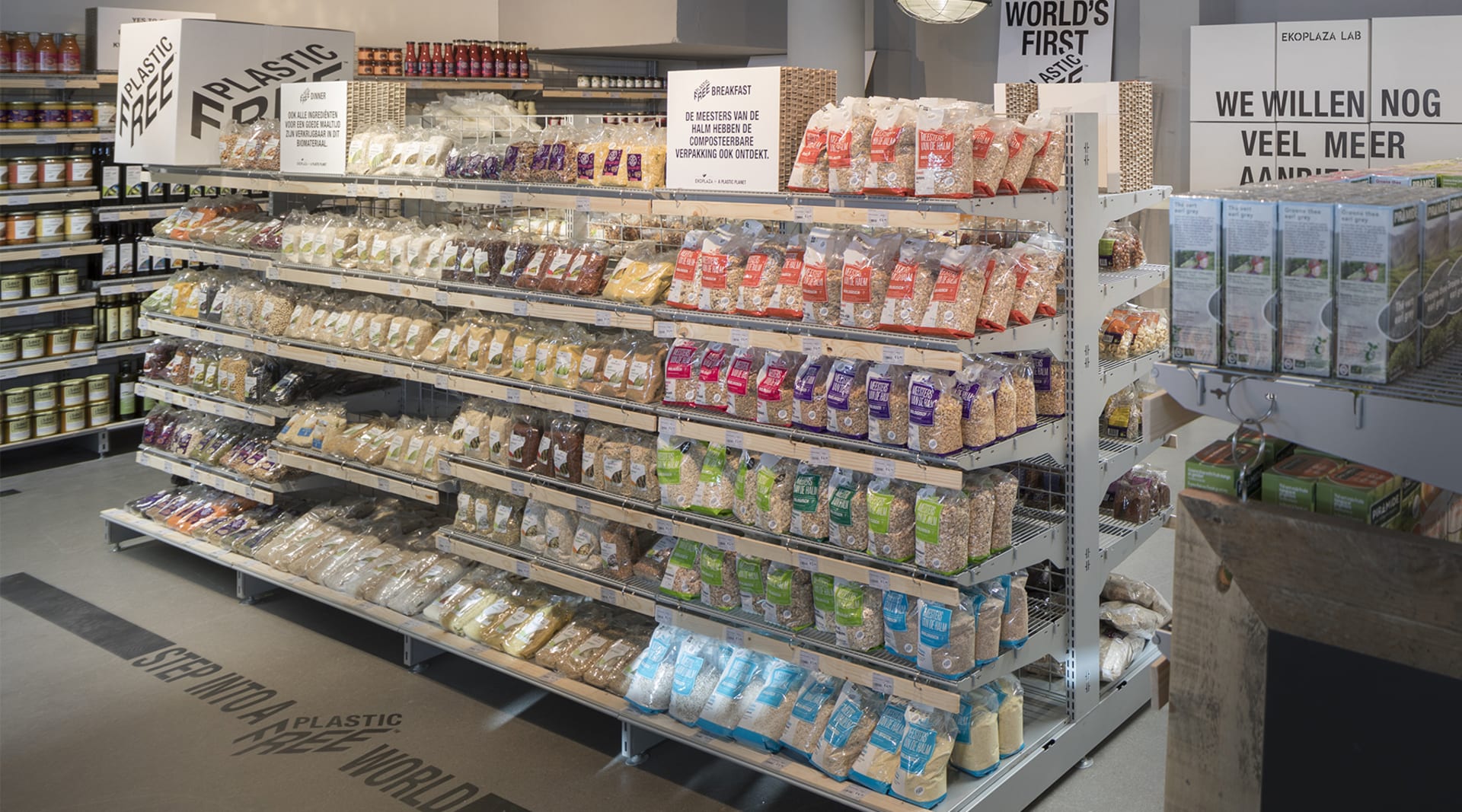The Amsterdam branch of Ekoplaza, a Dutch supermarket chain, is now selling over 700 items in plastic-free packaging. The alternative packaging has the look and feel of conventional plastic but is made from all-natural, biodegradable materials and is no more expensive than plastic wrapping. The initiative was spearheaded by A Plastic Planet, an organization fighting plastic pollution using creative campaigns.
A supermarket in the Netherlands is joining the war against plastic with the world's first plastic-free aisle.



“There is absolutely no logic in wrapping something as fleeting as food in something as indestructible as plastic,” Sian Sutherland, cofounder of A Plastic Planet, told the Guardian. “Plastic food and drink packaging remains useful for a matter of days yet remains a destructive presence on the Earth for centuries afterwards.”
The retail grocery sector has a responsibility to curb plastic usage, particularly as, in Britain alone, leading supermarkets create more than 800,000 tonnes of plastic packaging waste every year, according to a January 2018 investigation by the Guardian and environmental consultant Eunomia. Such wastefulness has prompted UK Prime Minister Theresa May to propose a tax on single-use plastic containers and support plastic-free supermarket aisles, an initiative also supported by 91% of the public, says a 2017 Populus survey.

Many supermarkets are pledging to reduce plastic waste in a bid to end what May has called “one of the great environmental scourges of our time.” Iceland was the first major retailer to commit to eliminating plastic packaging of its own-label goods, with a five-year plan that includes replacing plastic food trays with paper-based versions that can be recycled in domestic waste collections or at in-store recycling facilities. The supermarket chain is hoping to be plastic-free by 2023. Tesco has similar aspirations, vowing to make all its packaging recyclable or compostable by 2025.
Asda is following suit by reducing the amount of plastic in its own-brand packaging by 10% in 2018. It also intends to scrap plastic carrier bags (which currently carry a 5p charge) by the end of the year, replace the 2.4 million plastic straws used in its cafés with paper alternatives, and introduce reusable cups by the end of 2019. Sainsbury’s has committed to halving the amount of packaging it used in 2005 by 2020, with the Co-op aiming for 80% of its products to have “easy to recycle” packaging by 2020.
Despite reducing plastic usage, supermarkets have been criticized for not ditching plastic altogether. Given plans to ban all avoidable plastic waste in the United Kingdom by 2042, and an EU strategy that aims to ensure all packaging is reusable or recyclable by 2030, British and European supermarkets have no choice but to consider alternatives to this environmentally damaging material.
Please provide your contact information to continue.
Related Content

ACT Good Report Names VML No. 1 Network

